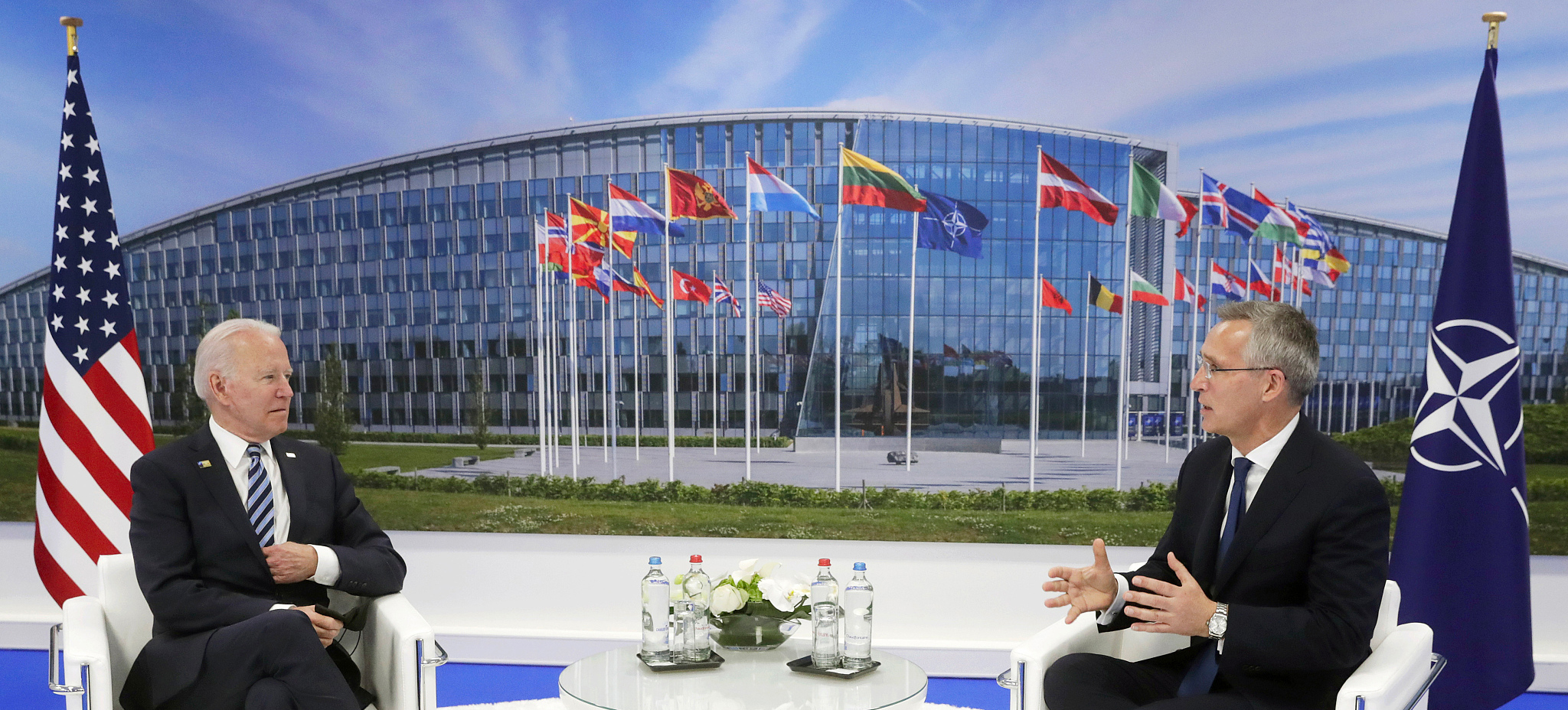Can NATO Remain United on the Battlefield?
Marc Ash Reader Supported News Brussels, Belgium, 14 June, 2021 | NATO Secretary General Jens Stoltenberg speaks with U.S. President Joe Biden. (photo: VCG)
Brussels, Belgium, 14 June, 2021 | NATO Secretary General Jens Stoltenberg speaks with U.S. President Joe Biden. (photo: VCG) Can NATO Remain United on the Battlefield?
Marc Ash Reader Supported NewsThere has for some time been a debate among senior NATO military analysts, mostly retired as to whether adequate deterrence measures were taken to prevent the invasion of Ukraine. That debate of course expands to current conflict and how best to mitigate further Russian aggression.
It would be accurate to say that there is a consensus among elite retired commanders in the NATO orbit that the deterrence posture of the West was not strong enough, certainly prior to the 24 February 2022 Russian invasion of Ukraine and arguably in response to the 2014 Russian annexation of Crimea. That consensus extends in the moment to the manner in which to arm Ukrainian forces. The objective being to help Ukraine defend itself and NATO’s eastern flank.
In contemporary Western democracies military advice bows to political will and there are good reasons for that. However when political failures lead nations to war and the specter of widespread destruction arises the advice of military advisers takes on greater significance.
US President Joe Biden has thus far been remarkably resistant to any word or action that he views as even potentially provocative of a Russian military response. The logic being that confrontational rhetoric risks confrontation. Something Biden has been very clear he wants to avoid. A strategy of deterrence through deescalatory language.
Nonetheless war has come to NATO’s doorstep and again Biden is advised to take stronger measures and again he appears to be the most reluctant member of the alliance to do so. Biden and perhaps Olaf Scholz of Germany standing in the face of the overwhelming concerns of an otherwise unified NATO and its military advisers.
Can the American President defer to consensus for the sake of the NATO unity he appears to value? Or can NATO unity only exist under US control? The latter would be a far weaker alliance.
Marc Ash is the founder and former Executive Director of Truthout, and is now founder and Editor of Reader Supported News.
